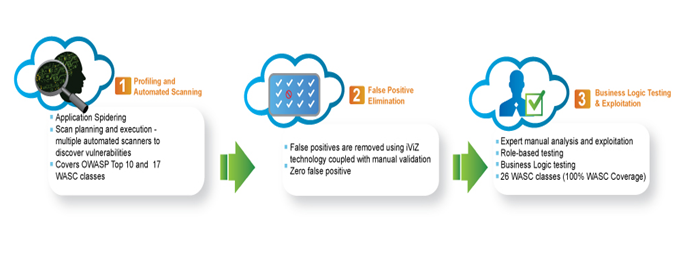
Software Testing is an integral and critical phase of any software development project. Developers and testers must ensure that newly developed products or product enhancements meet the client's functional and performance requirements and that those products are reliable and able to operate consistently under peak loads.
The value of software testing to a company's performance and reputation is immeasurable. Production flaws and delivery delays can damage profits, competitiveness and customer loyalty.
Fortune IT Services takes a strategic approach to quality management, helping you improve business agility while reducing costs and business and technical risks. We work with you to optimize your existing IT investments, integrate new approaches and address quality from a business perspective.
Software testing, depending on the testing method employed, can be implemented at any time in the development process. However, most of the test effort occurs after the requirements have been defined and the coding process has been completed. As such, the methodology of the test is governed by the software development methodology adopted.
Fortune IT Services provides crucial testing services for software development projects that help companies develop a quality product.
Application Testing
Application testing involves validating the functionality, performance, and reliability of an application before deployment. It ensures that the application meets business and technical requirements.
Types of Application Testing:
- Functional Testing: Verifies that all features work as expected.
- Performance Testing: Checks speed, scalability, and responsiveness under different loads.
- Usability Testing: Ensures a good user experience and ease of use.
- Compatibility Testing: Confirms the application runs on different devices, browsers, and OSs.
- Regression Testing: Ensures that new updates do not break existing functionalities.
- Automation Testing: Uses tools like Selenium, JUnit, or TestNG to run repeatable test cases.
Tools Used:
- Selenium, JMeter, TestNG, Appium, Postman (for API testing).
Security Penetration Testing (Pentesting)
Security penetration testing (or pentesting) is an ethical hacking practice to identify and fix vulnerabilities before attackers exploit them.
Types of Penetration Testing:
- Black Box Testing: Simulates an external attacker with no prior system knowledge.
- White Box Testing: Simulates an insider attack with full access to source code and architecture.
- Gray Box Testing: A mix of both, with partial access to system details.
Common Security Testing Areas:
- Network Security Testing: Identifies weaknesses in infrastructure (firewalls, routers, etc.).
- Web Application Security Testing: Finds flaws like SQL injection, XSS, CSRF.
- Mobile App Security Testing: Checks for insecure data storage and API vulnerabilities.
- API Security Testing: Ensures secure authentication and data transmission.
Tools Used:
- Burp Suite, OWASP ZAP, Metasploit, Nmap, Nessus, Kali Linux, Wireshark.
Code Review
Code review is a structured process of manually and automatically analyzing source code to identify bugs, security flaws, and maintainability issues.
Types of Code Reviews:
- Manual Code Review: Developers inspect the code for logic errors, security flaws, and adherence to coding standards.
- Static Code Analysis: Automated tools analyze code without execution.
- Dynamic Code Analysis: Executes the code to find runtime vulnerabilities.
Key Areas Checked in Code Review:
- Security vulnerabilities (e.g., hardcoded credentials, insecure functions).
- Code quality (readability, maintainability, and performance).
- Compliance with coding standards and best practices.
Tools Used:
- SonarQube, Checkmarx, Veracode, ESLint, Codacy, Fortify.





